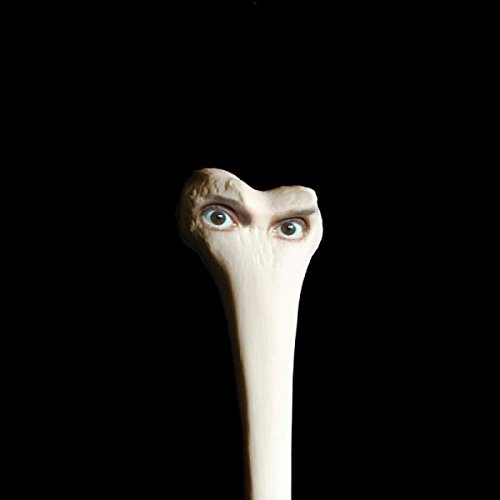
Juana Molina
Halo
Release Date: May 5, 2017
Genre(s): Pop/Rock, Alternative/Indie Rock
Record label: Crammed Discs
Music Critic Score
How the Music Critic Score works
Buy Halo from Amazon
Album Review: Halo by Juana Molina
Excellent, Based on 7 Critics
Based on rating 10/10
Place a clock on a jet that breaks the speed of sound, and you'll witness time itself slow down. Light, say the physicists, is deathless because it's so damn fast. Similarly, travel far enough - say, a few lightyears across the galaxy - and you'll flow through both space AND time. See, for her seventh album Juana Molina wants us to think of ancient magicks, with the bone on the cover gazing at us from its storied past.
Based on rating 4/5
Juana Molina is a quietly unsettling singer-songwriter from Argentina who specialises in experimental folktronica, mixing acoustic styles and electronica in songs that constantly switch between charming and quirky to downright spooky. On the album cover, her face appears to have morphed into a bone, like a witch from some ancient ceremony, while on the slow and doomy Lentísimo Halo there are references to an evil light which appears in Argentine folk tales. The daughter of a tango musician, Molina may sing in a trance-like whisper, but she understands the importance of rhythm; many of the songs are underpinned by a sturdy bass line, over which she adds guitar, bass or keyboards, playing all the instruments herself on several tracks.
Based on rating 8.0/10
The first songs Juana Molina wrote on her guitar as a young girl in Argentina were simple things, repetitive melodies comprised of a few notes and chords. She would play them over and over for weeks on end, lulling herself into a trance. Without the confidence to explore her droning ambient tendencies, she dressed them up with a chorus, verse, and bridge, a spoonful of sugar meant to disguise her kookier tendencies.
Based on rating 8/10
From the album cover of Juana Molina's seventh album, Halo, a bone bearing two human eyes stares shrewdly out at the viewer. It's an image as comical as it is unnerving, though not entirely unexpected from the inventive Argentinian singer/songwriter, who for two decades has danced nimbly around the boundaries of experimental pop, art, and design. Since abandoning her successful career as a comedic television actress in the mid-'90s, Molina has served up a constantly evolving pastiche of maverick sound that usually includes erratic beats, glowing electronics, fractured guitar loops, and all manner of treated vocals.
Based on rating 4/5
Having once made a living as a sketch comedy actress, Argentine songwriter Juana Molina has more recently gathered acclaim for her singular blend of folk, pop and electronica. Notable fans include Talking Heads' David Byrne and Deerhoof's John Dietrich, who guests on Halo, her seventh album. First track Paraguaya jerks into life with a gentle percussive trot and the buoyant sound of upright bass.
Based on rating 4/5
Juana Molina is a quietly unsettling singer-songwriter from Argentina who specialises in experimental folktronica, mixing acoustic styles and electronica in songs that constantly switch between charming and quirky to downright spooky. On the album cover, her face appears to have morphed into a bone, like a witch from some ancient ceremony, while on the slow and doomy Lentísimo Halo there are references to an evil light which appears in Argentine folk tales. The daughter of a tango musician, Molina may sing in a trance-like whisper, but she understands the importance of rhythm; many of the songs are underpinned by a sturdy bass line, over which she adds guitar, bass or keyboards, playing all the instruments herself on several tracks.
Based on rating 7/10
Is there a cooler Argentinian than Juana Molina? She's spent the last two decades constructing her own magical world with experimentalist electronica as her base - a kind of aural version of the Latin American hyperrealism of author Gabriel García Márquez and director Guillermo del Toro. 'Halo' smooches around in the same territory: beats flutter with hummingbird-wing intensity and elegant guitars flit in and out. As on the swirling psych-hop of 'Sin Dones', she often leaves a layer of the song unvarnished, scuzzing it up with electronic interference.
'Halo'
is available now

